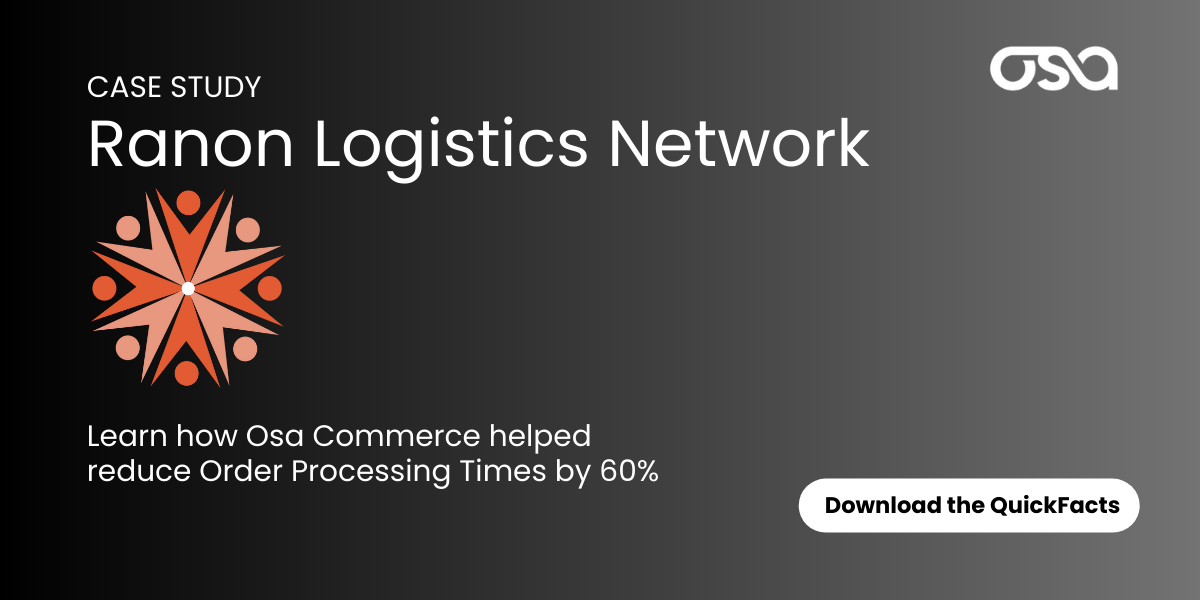%20(9).png)
In an era marked by rapid technological advancements, the supply chain industry has not remained untouched. The integration of blockchain technology and smart contracts has ushered in a new era of efficiency, collaborative visibility, and security. This transformative combination is reshaping the way businesses manage their supply chains, streamlining processes, reducing costs, and minimizing risks. So, what makes smart contracts essential, and how are they revolutionizing supply chain management for logistics professionals?
What are smart contracts?
Smart contracts, which run on blockchain networks, are self-executing digital contracts with the terms of agreement directly written into code. They automatically execute and enforce the terms of a contract when predefined conditions are met. This eliminates the need for intermediaries, reduces human error, and ensures trust and accountability among parties involved.
The smart contracts market revenue is expected to reach over a billion dollars by 2032, with 1.7 million current daily users.
Smart Contracts market revenue is expected to reach over a billion dollars by 2032, with 1.7 million current daily users
Transparency and Traceability
One of the most significant challenges in supply chain management is maintaining transparency and traceability across complex networks. Smart contracts address this issue by providing an immutable and transparent record of every transaction and event within the supply chain. This enables real-time monitoring and verification of goods as they move from one point to another. In industries like food and pharmaceuticals, this technology can help prevent fraud, and counterfeiting, and ensure the authenticity of products.
Moreover, miscommunication and disputes between supply chain partners can lead to costly delays and legal battles. Smart contracts provide a tamper-proof record of all interactions, utilizing collaborative visibility to make it easier to identify the source of any discrepancies and resolve disputes quickly. Additionally, the transparency of blockchain technology makes fraud more difficult, as any unauthorized changes to the contract's code or data are immediately detectable
Efficient Payments and Settlements
Traditional payment and settlement processes can be cumbersome, involving multiple intermediaries and time-consuming verifications. Smart contracts automate payment processes, ensuring that parties receive payments as soon as conditions are met. This not only accelerates transactions but also reduces the need for manual intervention, minimizing delays and disputes.
Inventory Management and Optimization
Maintaining optimal inventory levels is crucial to avoiding overstocking or stockouts. A robust inventory management system utilizes smart contracts to trigger reorder points automatically, ensuring that products are replenished when inventory reaches a certain threshold. This automation improves inventory management, reduces carrying costs, and enhances overall supply chain efficiency.
Compliance and Regulatory Adherence
Industries like pharmaceuticals, aerospace, and electronics are subject to stringent regulations and compliance standards. Smart contracts can be designed to automatically enforce compliance by ensuring that all participants adhere to predefined rules and regulations. This reduces the risk of non-compliance and associated penalties.
Real-Time Updates and Notifications
Traditional supply chain processes often involve manual tracking and communication, leading to delays and miscommunications. Smart contracts can trigger real-time notifications and updates to relevant parties, providing them with accurate information about the status and location of goods. This proactive approach enables quicker decision-making and enhances overall supply chain visibility.
The integration of smart contracts into the supply chain industry is transforming the way businesses operate and collaborate. By enhancing transparency, traceability, efficiency, and accountability, smart contracts are optimizing processes and reducing the potential for errors and disputes. While challenges such as scalability and integration with existing systems remain, the potential benefits of this technology are undeniable. As industries continue to adopt and adapt to these innovations, the future of supply chain management looks promising, with increased efficiency, reduced costs, improved customer satisfaction, and more seamless collaborative visibility on the horizon.



 Flora Collins
Flora Collins
